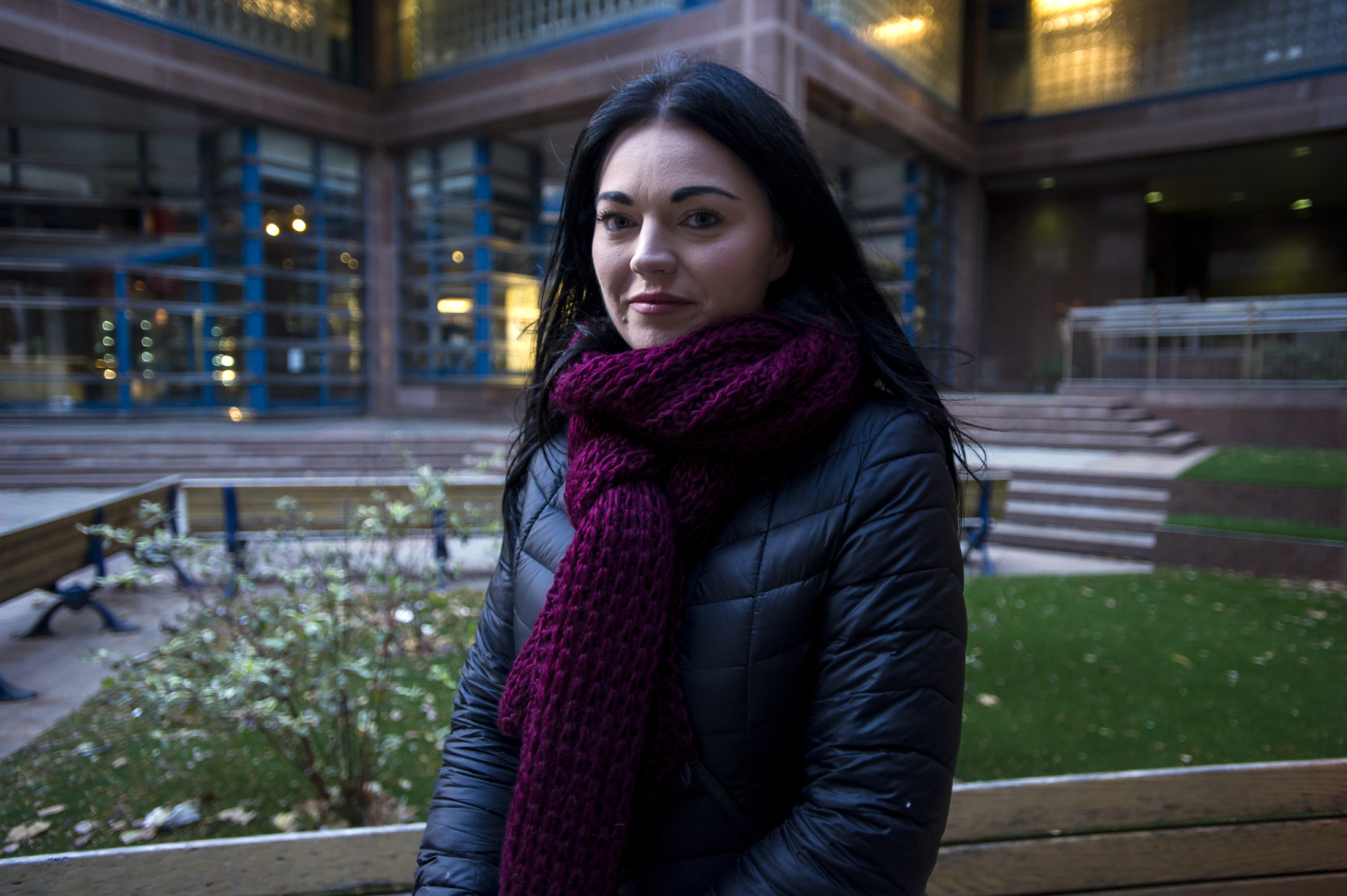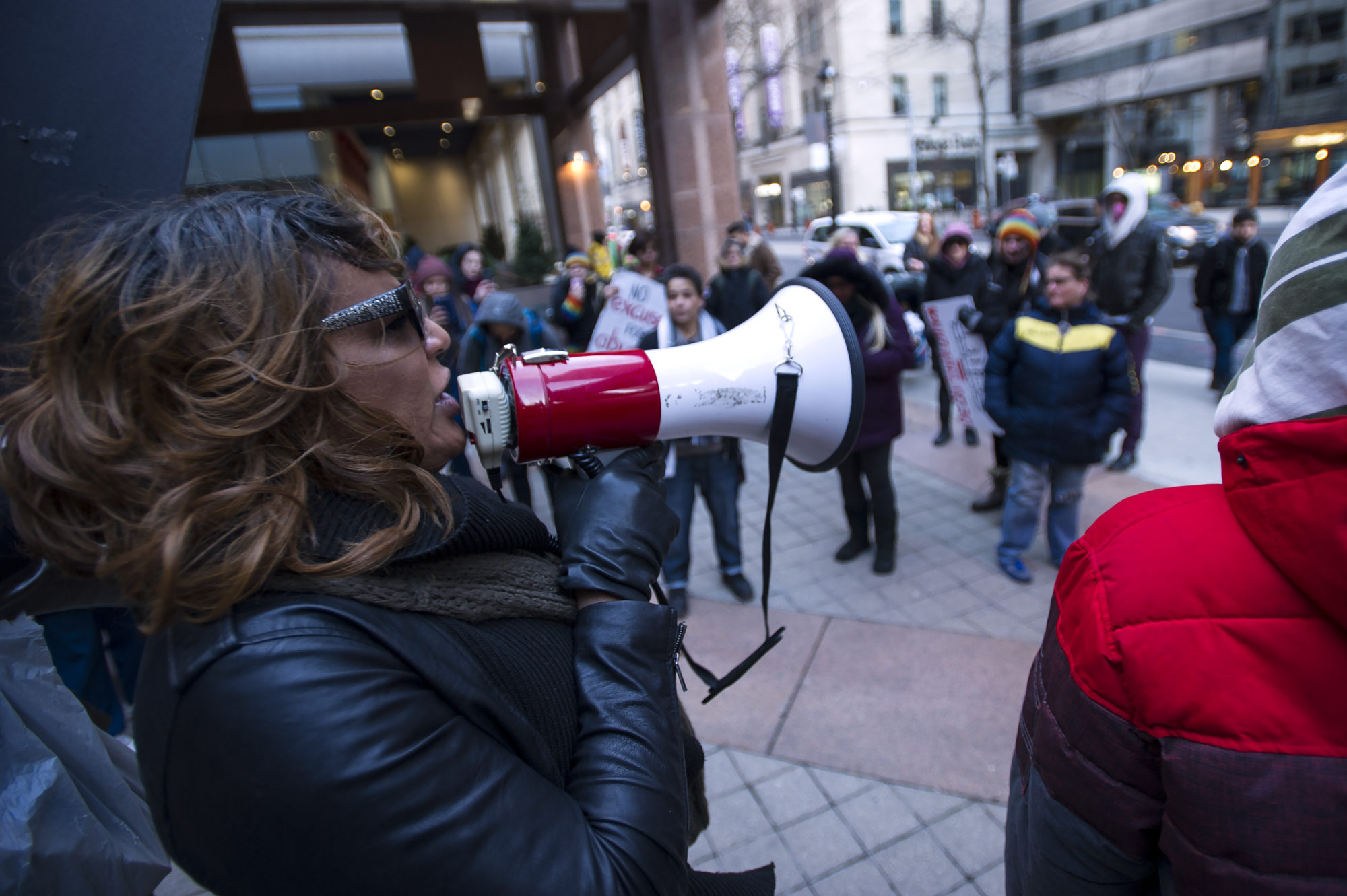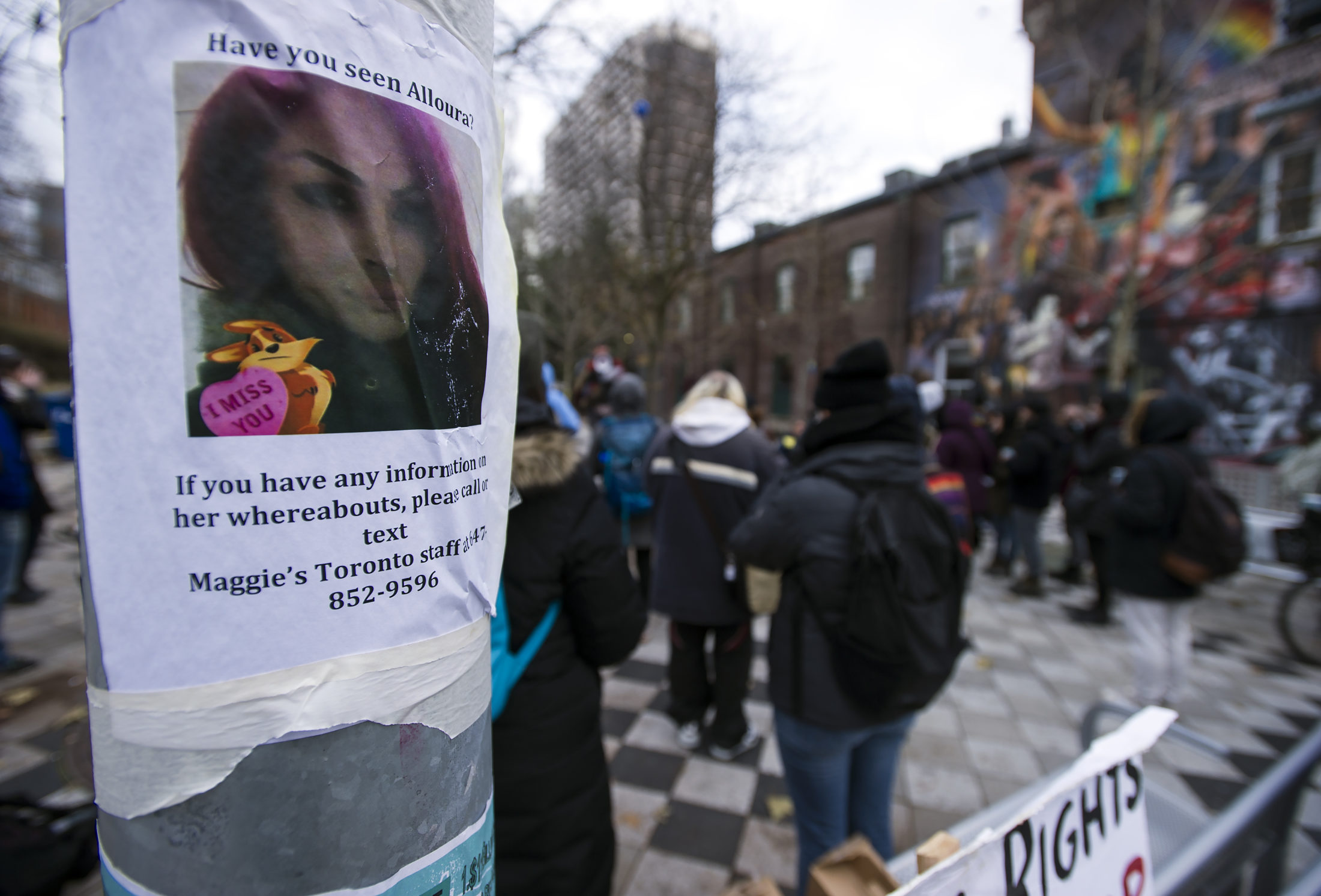Rebecca Price was walking through the Rosedale ravine in mid-town Toronto with a friend on Aug 5, 2017, when she came across a horrific sight: a dead woman’s body.
She called the police and followed up with the detective. Price spoke to the detective a few times, but he didn’t seem to know much.
“I think he just couldn’t wait to get me off the phone,” she says.
She did learn one crucial detail: the body was of a transgender woman.
So Price went online and looked for organizations that did advocacy for transgender people, figuring they might be able to help find out who the woman was. She reached out to The 519 community centre, which told her that they’d look into it.
Over the next few months, she didn’t get any more information. There were no reports in the press about a trans woman’s body that had been found.
She would check The 519’s website to see if they had posted something, but there was nothing. And she continued to contact the police, asking them to keep her in the loop so that she could attend a service for the woman.
But the police told her that if the body wasn’t reclaimed, the coroner would destroy it. No service.
So she decided to go down to the ravine herself with a co-worker.
“I put some flowers down, because nobody seems to know who this person is,” Price says.
A missing woman
What Price didn’t know was that at the same time she was trying to find answers about the dead woman she had come across, members of Toronto’s trans community were searching for a missing friend.
Alloura Wells, 27, hadn’t been seen since July. Monica Forrester, a longtime trans and sex-work activist, had been in touch with Wells’ family since then, trying to figure out where she was.
Forrester had known her for years, first meeting her when Wells was 17 years old and trying to sneak into bars on Church Street.
“She was such a staple of the community — everybody loved her,” Forrester says.
Wells had recently fallen on some hard times. She couldn’t afford housing and couldn’t get a job because of transphobia. “So she did the only thing she could, live with a lot of people who lived under the bridge,” Forrester says.
When Wells went missing, Forrester thought that she might be incarcerated. But she also worried that the worst could have happened. She knows three Toronto trans women who have died from opiate overdoses this year. And many trans homeless women live in fear of violence.
After hearing rumours that Wells might be dead, Forrester contacted Corrections Canada to see if she was in prison. But she wasn’t.
So Maggie’s, a sex worker advocacy group that Forrester works with, decided to go public about Wells last week and alerted the media.

Rebecca Price stands in front of the Toronto Police Service headquarters during the Vigil, Accountability and Justice for Trans People rally in Toronto on Nov 19, 2017. Credit: Andrej Ivanov/Xtra
It was only when the news coverage began that Price heard about Wells. A friend of Price’s saw a news report and told Price, who promptly contacted Maggie’s.
“They were just as shocked as me,” says Price.
Forrester couldn’t believe that the police or The 519 hadn’t contacted Maggie’s or any of the other social agencies that work in Toronto’s downtown east. “They could have notified us in some capacity, to bring light to this, to ask if there were people missing in our community,” she says.
(The head of The 519 confirms they knew about the body found in August. They say that they tried but couldn’t verify the information and didn’t want to cause panic or spread rumours.)
Forrester can’t help but see this as another instance of society, and especially the police, not taking the lives of trans women seriously. That’s compounded by the fact that when Wells’ father tried to file a missing person’s report, he was reportedly told that she wasn’t a priority because she was homeless.
Maggie’s organized a search for Wells through the ravine on Nov 11. And they’ve contacted the police about what they believe to be strange items left where Wells had been staying.
But Forrester says that getting the police to check out the scene was like pulling teeth.
A vigil
On Nov 19, the day before the Transgender Day of Remembrance, both Price and Forrester attended a vigil at Barbara Hall Park in Church-Wellesley Village for the woman found in the ravine. Forrester, who helped organize the event, still doesn’t know if the dead woman is Wells, but she felt the need to memorialize the woman, regardless of who she is.
“We’re not 100 percent sure this is Alloura,” she told the three dozen people who had assembled for the vigil. “But this is a body, though; we’ve got to recognize that it’s a person in our community. She has a family, she has friends.”
Price came to honour the woman she found and to lend support to Maggie’s.
“They’re the only ones that seemed to be taking any kind of action,” she says.

Monica Forrester, a trans and sex-work activist, speaks in front of the Toronto Police Services headquarters during the Vigil, Accountability and Justice for Trans People rally in Toronto, on Nov 19, 2017. Credit: Andrej Ivanov/Xtra
After the vigil, the assembled crowd marched to Toronto Police Service headquarters to demand accountability, and to pressure the police to take trans lives seriously.
“I’ve been in the community 30 years; I can tell you how it feels when they take you down to Cherry Beach and leave you there in the winter,” Forrester said to the crowd. “They did a lot of reconciliation with the gay and lesbian community, but did nothing for the trans community.”
“They never sat down with us and listened to what we went through and we endured,” she said. “They never said sorry for all the stuff they did to our community and still are doing.”

 Why you can trust Xtra
Why you can trust Xtra


